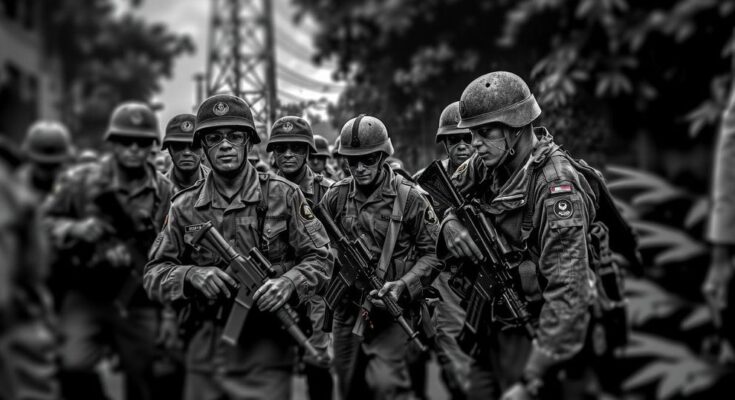A recent report reveals that the Dutch government condoned systemic violence by military personnel during the Indonesian independence war, contradicting previous claims of isolated incidents. The researchers argue that the violence was widespread, deliberate, and tolerated across political and military levels, rooted in a colonial mindset. The report has sparked controversy regarding accountability for war crimes and the portrayal of Dutch veterans.
A recent report indicates that the Dutch government and military deliberately tolerated widespread systemic violence committed by Dutch soldiers during the Indonesian independence war, which lasted from 1945 to 1949. The study, funded by various governmental research institutions, refutes the longstanding claim by the Dutch State that the violence was limited to isolated incidents. Evidence suggests that extreme violence was not only rampant but often sanctioned at multiple levels of government and military hierarchy.
The researchers assert that the violence stemmed from the Netherlands’ determination to suppress the Indonesian independence movement, ignited by the declaration of independence by Indonesia in 1945. The response was a calculated effort to maintain colonial control, backed by a pervasive colonial mindset that viewed the Indonesian population as incapable of self-governance. This mindset overlooked the broad support for independence among Indonesians.
The research documented various forms of brutality employed by Dutch forces, including extrajudicial executions, torture, and widespread destruction of property. While acknowledging the violence on both sides, the researchers emphasize that the Dutch military’s actions were systematically motivated and frequently went unpunished, leading to a culture of impunity. Military judges often excused abuses perpetrated during operations, considering them as necessary to achieve strategic objectives.
Responses to the findings have been mixed. The Committee of Dutch Debts of Honor criticized the report for lacking clarity in attributing responsibility for war crimes, while the Veterans Platform expressed disappointment over the portrayal of Dutch veterans, arguing that the study unfairly depicted them as perpetrators of brutality. They advocated for a more nuanced understanding of the historical context that led to the conflict, calling for honesty about the past for future generations.
The report, “Independence, Decolonization, Violence, and War in Indonesia, 1945-1950,” was produced by a collaboration of prominent Dutch research institutions aimed at investigating the historical conduct of Dutch forces during the Indonesian independence struggle. This study seeks to address the previously held beliefs suggesting that any violence was sporadic rather than systemic, highlighting the need to reevaluate perceptions of this colonial conflict within the context of post-World War II geopolitics and entrenched colonial attitudes. Indonesia’s declaration of independence in August 1945 sparked a violent conflict as the Netherlands sought to reclaim control over its former colony. The research reveals that the brutal tactics employed by Dutch troops were not merely reactions to resistance but were instead part of a broader strategy to suppress Indonesian aspirations for self-determination. Historical records indicate a troubling pattern of extreme violence that has been largely ignored or downplayed in the ongoing discourse around this conflict, necessitating a comprehensive reassessment of Dutch colonial history and its legacies.
The report substantiates allegations of systemic violence by Dutch military forces during the Indonesian independence war, revealing a troubling legacy of colonial oppression. It underscores the complicity of various levels of Dutch governance in permitting extreme violence against the Indonesian populace. The discourse surrounding these findings has sparked controversy, highlighting differing perceptions of accountability and the historical context within which these brutalities occurred. Overall, the findings call for a greater recognition of the complex and often painful history of colonialism in the Netherlands, aiming to foster an informed dialogue that acknowledges the past while addressing its implications for contemporary society.
Original Source: nltimes.nl




